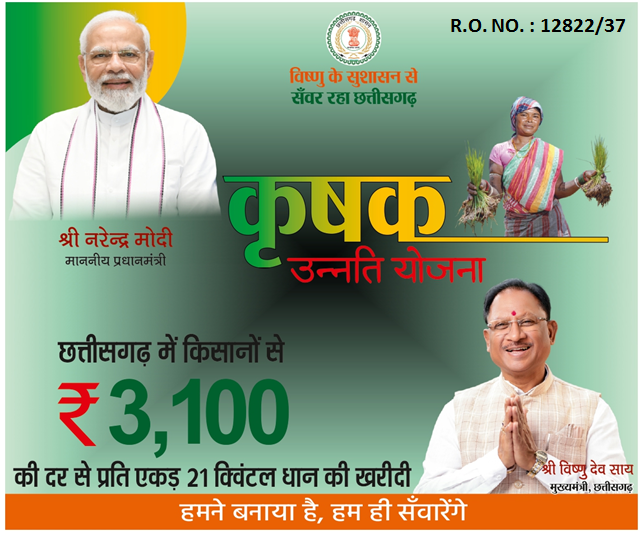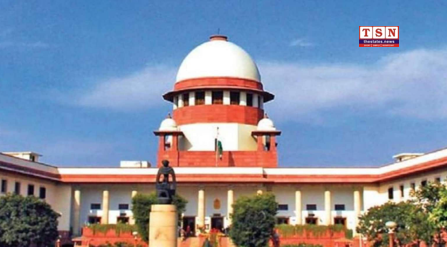New Delhi, (Thestates.news)| The Supreme Court on Monday overturned the 1998 PV Narasimha Rao judgment, which held that members of parliament and legislative assemblies could claim immunity under Articles 105(2) and 194(2) of the Constitution for receiving a bribe in contemplation of a vote or speech in the legislature.
A seven-judge bench of Chief Justice of India DY Chandrachud, Justice AS Bopanna, Justice MM Sundresh, Justice PS Narasimha, JB Pardiwala, Sanjay Kumar, and Manoj Misra said, “We hold that bribery is not protected by parliamentary privileges.“ Bribery is not rendered immune under Articles 105 or 194 because a member engaging in bribery indulges in a criminal act that is not essential for the function of casting a vote or giving a speech in the legislature. Corruption and bribery by members of the legislature erode probity in public life.
The bench, while overturning the Narasimha Rao judgment, which granted immunity from prosecution to a member of a legislature who allegedly engaged in bribery for casting a vote or making a speech, said this has wide ramifications for the public interest, probity in public life, and parliamentary democracy. There is a grave danger that this court will allow the error to be perpetuated.
The Bench said privileges in pre-independence India were governed by statute in the face of a reluctant colonial government.
This statutory privilege transitioned into a constitutional privilege after the commencement of the Constitution.
However, a legislator cannot claim immunity from prosecution on charges of bribery for a vote or a speech by relying on these constitutional provisions since it fails to fulfill the two-fold test of first, being tethered to the collective functioning of the House, and second, being necessary for the discharge of the essential duties of a legislator.
In a 1998 case, a five-judge bench of the Supreme Court—in a 3:2 majority—held that parliamentarians enjoy constitutional immunity against criminal prosecution in connection with their speeches and votes in the House.
Articles 105(2) and 194(2) extend this constitutional privilege and immunity to parliamentarians and legislative assembly members, respectively.
An appeal was filed by Jharkhand Mukti Morcha leader Sita Soren, who was accused of accepting a bribe, against the 1998 judgment.
The Court also held that the PV Narasimha judgment resulted in a paradoxical situation where a legislator who accepts a bribe and votes accordingly is protected, whereas a legislator who, despite taking a bribe, votes independently is prosecuted. This interpretation is against the letter and spirit of Articles 105 and 194 of the Constitution.
Corruption by legislators erodes the foundation of democracy. The judgment stated, “Articles 105 and 194 of the Constitution seek to create a fearless atmosphere where debate, deliberations, and exchange of ideas can take place within the Parliament and the state legislature. For this exercise to be meaningful, members of the legislature and the persons involved in the work of any committee must be free from fear or favour induced into them by a third party.
These members must be able to exercise their free will and conscience to enrich the functioning of the House. This is exactly what is taken away when a member is induced to vote in a certain way, not because of their belief or position on an issue, but because of a bribe taken by the member.”
Corruption and bribery by members of the legislature erode the foundation of Indian parliamentary democracy. ‘It is disruptive of the aspirations and deliberative ideals of the Constitution and creates a polity that deprives citizens of a responsible, responsive, and representative democracy.”
The Court clarified that an MLA taking a bribe to vote in Rajya Sabha elections is also liable under the Prevention of Corruption Act.
The constitution bench held that a member of parliament or the state legislature cannot claim immunity from prosecution on the charge of bribery in a criminal court under Articles 105(2) and 194(2) of the Constitution. “We disagree with and overrule the judgment of the majority on this aspect. We have concluded that, first, the doctrine of stare decisis is not an inflexible rule of law.
A larger bench of this court may reconsider a previous decision in appropriate cases, bearing in mind the tests that have been formulated by this court.
The apex court also noted that unlike the House of Commons in the United Kingdom, India does not have ‘ancient and undoubted privileges’ vested after a struggle between the Parliament and the monarch.
The Court held that the offense of bribery as per the Prevention of Corruption Act is complete the moment the illegal gratification is taken, and it is immaterial whether the legislator votes or gives a speech later in the house in terms of the bribe. “The offense of bribery is agnostic to the performance of the aggrieved action and is crystallized on the exchange of illegal gratification. It does not matter whether the vote is cast in the aggrieved direction or if the vote is cast at all. The offense of bribery is complete at the point in time when the legislator accepts the bribe.”
The judgment authored by CJI DY Chandrachud stated, ‘the offense of bribery is agnostic to the performance of the aggrieved action and is crystallized in the exchange of illegal gratification.”
The Court also held that the PV Narasimha judgment resulted in a paradoxical situation where a legislator who accepts a bribe and votes accordingly is protected, whereas a legislator who, despite the matter pertains to the judgment passed in the JMM bribery scandal, which rocked the country.
The Supreme Court decided to revisit its judgment when the issue came before it in 2019.
A bench headed by then chief justice Ranjan Gogoi was hearing an appeal filed by Sita Soren, a JMM MLA from Jama and daughter-in-law of party chief Shibu Soren, who was accused in the JMM bribery scam. Sita Soren was accused of taking bribes to vote for a particular candidate in the Rajya Sabha election in 2012.
She had contended that the constitutional provision granting lawmakers immunity from prosecution, which saw her father-in-law being let off the hook in the JMM bribery scandal, be applied to her. She had moved the apex court against the Jharkhand High Court order of February 17, 2014, refusing to quash the criminal case lodged against her. The Narasimha Rao government, which was in a minority, survived the no-confidence vote with their support.
The three-judge bench comprising the then CJI Ranjan Gogoi, Justice S. Abdul Nazeer, and Justice Sanjiv Khanna had then said it would revisit the SC verdict in the JMM bribery case involving Shibu Soren, a former Jharkhand chief minister and ex-union minister, and four other party MPs who had accepted bribes to vote against the no-confidence motion threatening the survival of the P V Narasimha Rao government in 1993.
A bench headed by the then Chief Justice of India, Justice Gogoi, referred the matter to a five-judge bench, noting it had “wide ramifications” and was of “substantial public importance ”. The five-judge bench, comprising Chief Justice DY Chandrachud, Justice A S Bopanna, Justice MM Sundresh, Justice J B Pardawala, and Justice Manoj Mishra, agreed on September 20, 2023, to reconsider its judgment, saying it was an important issue having a significant bearing on the “morality of polity ”.
The Five-Judge Constitution Bench led by Chief Justice DY Chandrachud on the same day, September 20, considered the matter to be of utmost importance and referred the Supreme Court’s judgment in P V Narasimha Rao v State (1998) to a seven-judge bench. The Seven Judges Bench, led by the Chief Justice of India, started hearing the matter on October 4, 2023. The bench was tasked with deciding the correctness of P. V. Narasimha Rao v. State (1998).
Senior Advocate Raju Ramachandran argued in favor of the precedent. He appeared for Sita Soren, a member of the Jharkhand Mukti Morcha (JMM) who had been accused of taking a bribe to vote for an independent candidate in the Rajya Sabha elections of 2012. Soren eventually voted for a candidate from the JMM, not an independent candidate. (UNI)
Saturday, July 27, 2024
Supreme Court holds ‘Bribery is not protected by Parliamentary privileges’
R.O. NO. : 12822/37





hardik pandya new
result (neet)



VIDEO
- "Agneepath: A Pivotal Initiative for Revitalizing the Army"
- Stay Vigilant to Prevent Losses from Heavy Rain; Prioritize Childrens Safety: CM Dr. Yadav
- Indian Army is one of the best armies in the world: Chief Minister Dr. Yadav
- Shri Prabhat Jha lived an ideal life
- Labour Minister Shri Prahlad Patel for wage revision of workers in every five year
Recent Posts
- Governor attends 165th Income Tax Day Celebrations
- Kalinga University signs MoU with Bhakt Mata Karma College for fostering Academic Cooperation
- Jandarshan scheduled for July 25 postponed
- Michelin Star Chef Vikas Khanna releases ‘Pinky Ka Basta’ with EkDesh
- Nagarjuna’s triumphant return in ‘Naa Saami Ranga’
Recent Comments
No comments to show.
© 2024 The States News - Design by Rahul 9407771000.






